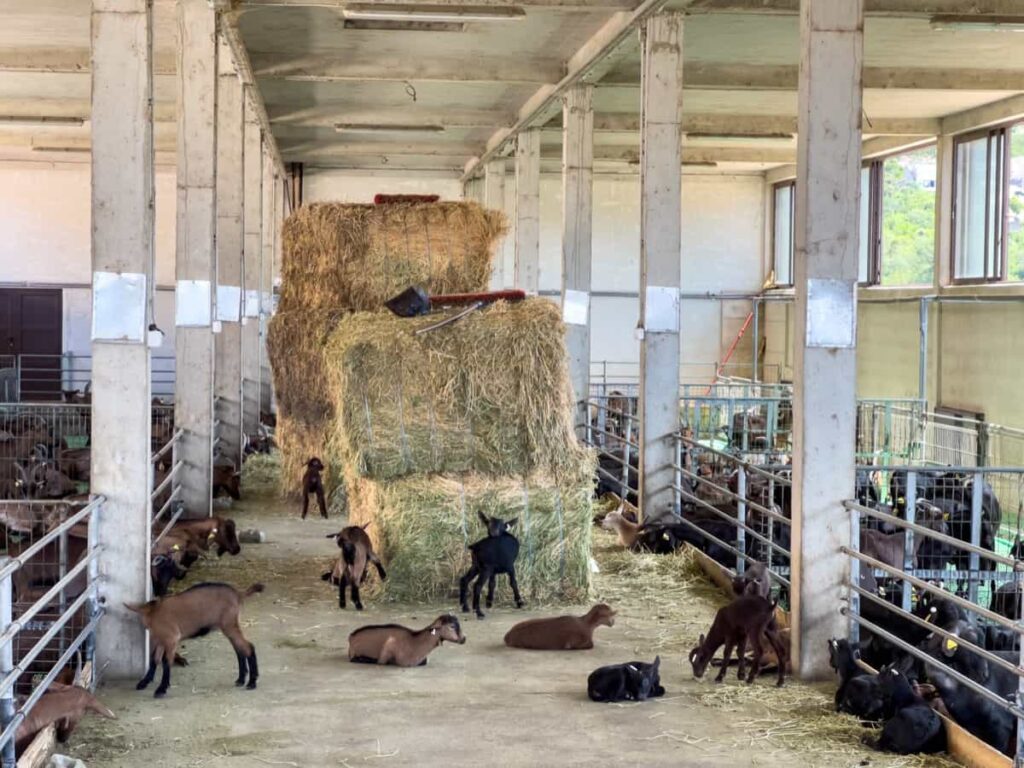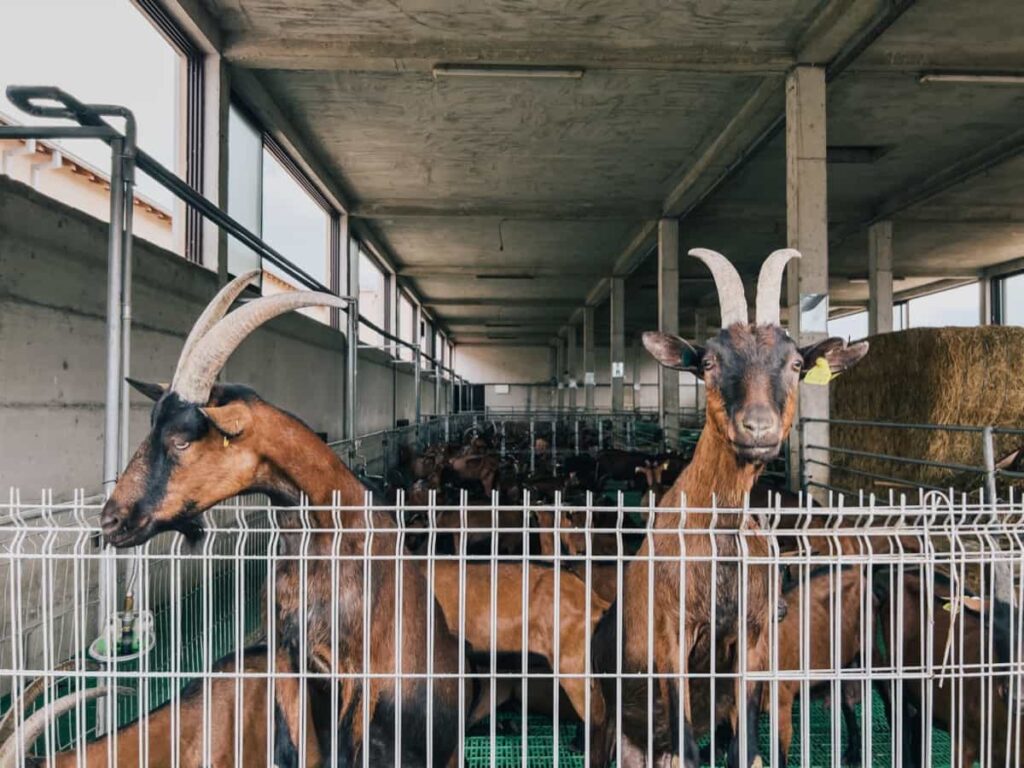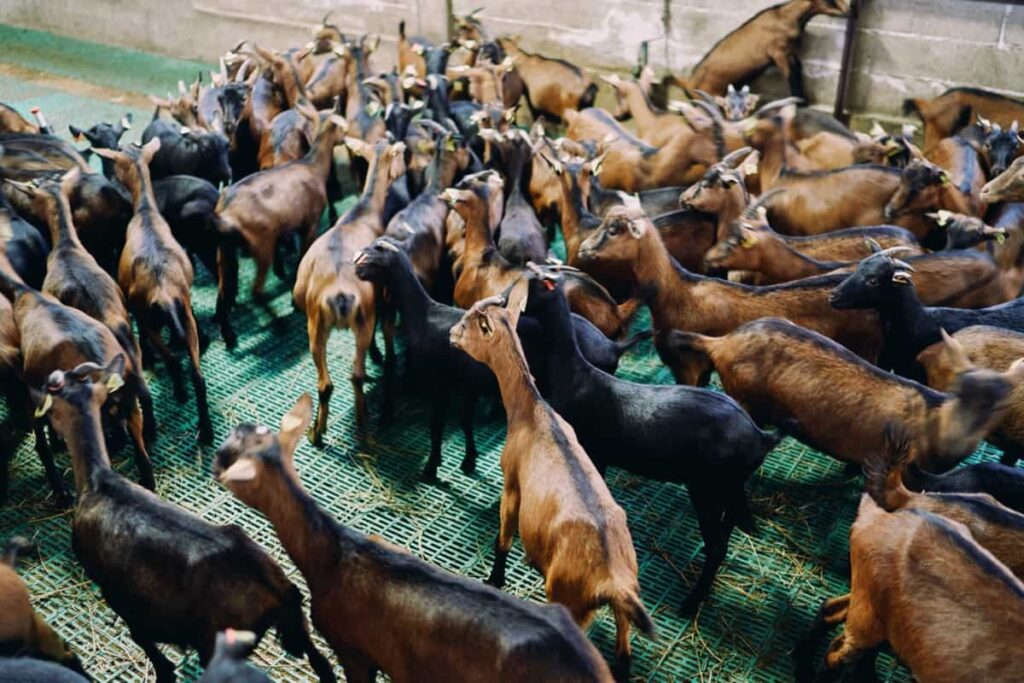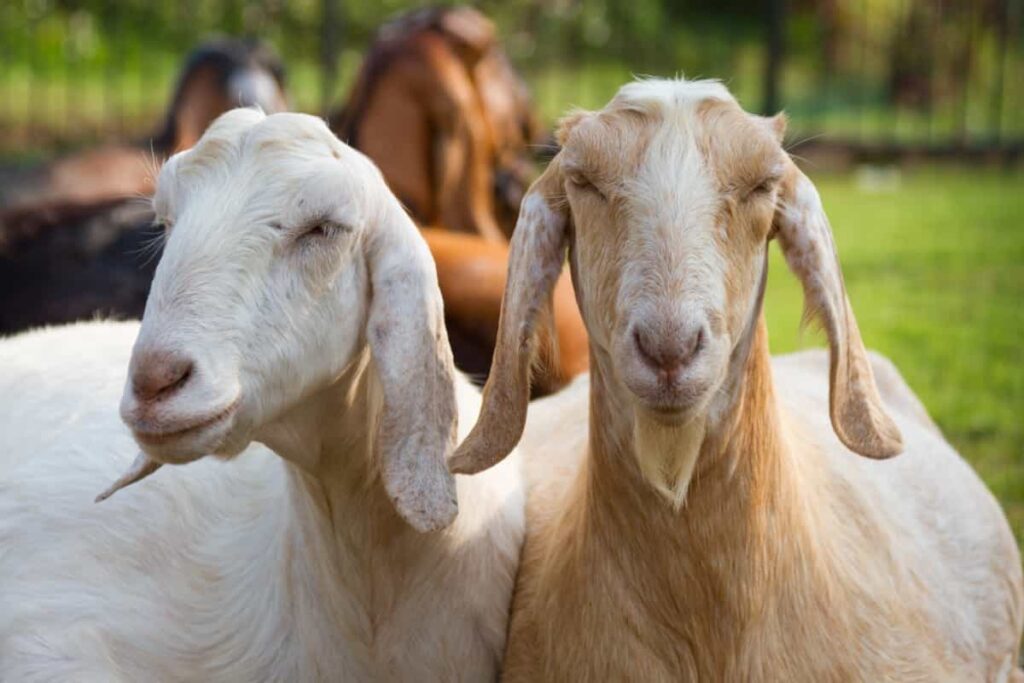Discover Karnataka’s thriving goat farming landscape in this insightful blog. We delve into the current trends, diverse goat breeds, and pivotal government initiatives shaping this sector, offering a clear, comprehensive overview for enthusiasts and farmers alike.

Goat Farming in Karnataka
Karnataka Goat Farming: An Overview of the Industry’s Current Status
Goat farming in Karnataka is a growing industry that contributes significantly to the state’s agricultural economy. The state government supports the industry through insurance, subsidies, and training opportunities. Programs like the Tribal Subplan and Special Component offer financial assistance for goat purchases, promoting involvement from underprivileged areas.
Rural entrepreneurship programs like the PM-FME Scheme and NLM EDP Entrepreneurial Programme stimulate goat-related businesses. Farmers, including breeders, can access financial help via the Kisan Credit Card program. Karnataka ranks fifth in India in terms of goat population.
Different Breeds of Goats Found in Karnataka and Their Characteristics
Barbari Goats: Dual-purpose breed, excelling in both meat and milk production. Their short-haired white coat distinguishes them with light brown patches, erect horns, and small tails. Mature bucks weigh between 35-45 kg and between 25-35 kg. A lactating doe produces around 1.5 kg of milk daily. It is ideal for stall-fed farming systems.
Beetal Goats are another dual-purpose breed found in Karnataka, Punjab, and Haryana. They have long-legged bodies, convex faces, long ears, and a black or brown coat with white spots. Mature bucks weigh 45-65 kg and 35-45 kg. Milk production ranges from 1-2 kg per day.
Osmanabadi Goats: Primarily a meat breed, these goats have a predominantly black coat, though other colors are common. They have medium-sized horns and ears. Mature bucks weigh 32-36 kg and 25-30 kg. They are known for high fertility, disease resistance, and adaptability to various climates.
Tellicherry goats: Indigenous to Kerala and found in Karnataka, they are small to medium-sized and renowned for their excellent meat quality. They are highly adaptable to local environments, making them a valuable breed in these regions.
Government Policies and Support for Goat Farming in Karnataka
1. Distribution under Special Component and Tribal Sub plan
- 6+1 Sheep/Goat for Scheduled Caste and Tribe Beneficiaries.
- Unit Cost: Rs. 45,000
- Subsidy: 90% (Rs. 40,500)
- Beneficiary Contribution: Rs. 4,500
In case you missed it: Karnataka Sheep Farming: A Comprehensive Guide to Loans and Subsidy

2. Ex-gratia for Accidental Death of Small Animals
Compensation of Rs. 5,000 for sheep and goats above six months and Rs. 3,500 for 3-6 months of age in case of accidental death
3. Amrita Swabhimani Kurigahi Scheme
- Distribution of 20+1 sheep and goat units to economically backward members of sheep and wool producers’ cooperatives.
- Unit Cost: Rs. 1,75,000
- Funding: 50% National Cooperative Development Corporation, 25% State Government, 25% beneficiary.
Financial Assistance and Incentives Provided by the Government of Karnataka for Goat Farmers
- NLM EDP Entrepreneurial Programme: Supports rural poultry, sheep, goat, pig farming, and silage production units with significant subsidies.
- PM-FME Scheme: Encourages setting up or upgrading food processing units related to livestock products.
- Kisan Credit Card: Offers financial assistance and interest subsidies for farmers, applicable to goat farming.
Role of Karnataka State Agricultural University in Developing and Improving Goat Farming Practices
The Karnataka State Agricultural University (KSAU), in the Indian state of Karnataka, which is well-known for this lucrative industry, has greatly expanded goat farming. By creating breeds appropriate for the area’s conditions and providing farmers with reasonably priced, high-quality goats, KSAU improves goat farming.
It explores nutrition, health, and breeding in goats and distributes its results via seminars and newspapers. KSAU’s extension services help farmers productively raise goats by providing them with marketing and shelter assistance. Furthermore, KSAU works with other groups to guarantee that farmers can access markets and resources. KSAU’s initiatives result in more lucrative, sustainable, and productive goat farming in Karnataka.
Challenges Faced by Goat Farmers in Karnataka and How the Government is Addressing Them
- Breeding Stock Availability: Need for access to high-quality, genetically superior goats. The government has set up breeding centers to address this.
- Disease Outbreaks: Common issues include foot-and-mouth disease, PPR, enterotoxemia, anthrax, brucellosis, and mastitis. Farmers must adopt practices like vaccination and hygiene to manage these.
- Feed Resource Limitation: Competition with commercial crops and urbanization reduce grazing land. Farmers face higher costs due to their reliance on purchased feed and crop residues. Improved feeding practices are essential.
Government Measures
- Subsidies for breeding stock, shed construction, and feed procurement.
- Training on various goat farming aspects.
- Technical assistance through veterinary officers.
- Disease surveillance units.
- Promotion of goat product value addition.
In case you missed it: Date Palm Cultivation in Karnataka: A Step-By-Step Guide to Planting to Harvesting for Beginners

Impact of Climate Change on Goat Farming in Karnataka and Adaptation Strategies
Climate change has a significant impact on goat farming in Karnataka, a state that already faces environmental challenges. Goats are suffering from the limited availability of grass and water due to rising temperatures and irregular rainfall patterns. These circumstances may reduce the rate of reproduction and make the herd more vulnerable to disease, which will reduce productivity and health.
Farmers are adjusting by using effective water management strategies and drought-resistant fodder crops. It’s also important to make improvements to the shelter that protects goats from harsh weather. Furthermore, breeding techniques are changing to choose goats with improved disease resistance and heat tolerance. Such climate-adaptive techniques are essential to the continued goat farming in Karnataka.
Market Trends and Opportunities for Goat Farmers in Karnataka
Goat farming in Karnataka, a region in southern India, is a promising and profitable venture, especially for those starting a low-cost business. The diverse climate makes it ideal for raising versatile, resilient goats. With high demand for goat meat, milk, and skin, both locally and internationally, farmers can expect good returns.
Goat meat is a popular food, while milk is valued for its health benefits and for making dairy products. The state government supports farmers by providing quality breeding stock, training, financial assistance, and subsidies. This comprehensive support positions goat farming as a key contributor to Karnataka’s economy and a lucrative opportunity for farmers.
Collaboration between Farmers, Government, and Private Sector to Boost Goat Farming in Karnataka
The Karnataka Goat Development Project (KGDP) is a collaboration between the government, private sector, and farmer groups to improve goat farming in Karnataka. The Bill Gates Foundation, the International Livestock Research Institute, and the Department of Animal Husbandry and Veterinary Services support the initiative, which aims to improve goat breeds, healthcare, feed, training, and market access.
Private companies like Prabhat Agri Biotech Ltd. and Goat Trust supply quality breeding materials. The project benefits over 40,000 farmers across 12 districts, covering about 200,000 goats. It has increased milk yield, average goat weight, and income and reduced mortality rates. The initiative supports women and youth, making it a successful model for smallholder farmers in Karnataka.
Future Prospects and Sustainability
Karnataka’s goat farming industry has a bright future because of its versatility and cheap startup costs. Small-scale farmers might choose to raise goats as a viable option because of the region’s varied climate. The market potential is growing as goat meat and dairy products become more in demand. Government programs, which provide financial assistance and technical support, further strengthen this industry.
Goats are also essential to rural lives since they provide a reliable source of revenue. This farming style, which places a strong emphasis on environmentally benign methods, fits very well with sustainable agriculture, guaranteeing long-term sustainability and promoting food security and rural development in Karnataka.
In case you missed it: Karnataka Organic Farming: For Vegetables, Fruits, Millets Crops, Livestock, Aquaculture, and Certification

Frequently Asked Questions (FAQ) on Karnataka Goat Farming
Is There a Market for Organic Goat Products In Karnataka?
Yes, there’s a growing market for organic goat meat and dairy products driven by health-conscious consumers.
Can Goat Farming Be Integrated with Crop Farming?
Yes, goat farming complements crop farming well, as goats can graze on crop residues, and their manure can enrich soil fertility.
Conclusion
Due to a variety of breeds and strong government policies, goat farming is thriving in Karnataka. With schemes offering financial aid, insurance, and veterinary support, farmers are well-equipped to enhance productivity and contribute significantly to the state’s agricultural economy.
- Profitable Village Farming Business Ideas in 2024
- High-Yield Aquaculture: Fast-Growing Fish for Farming
- Effective Fish Pond Construction Techniques for Beginners
- Irrigation and Water Management in Pineapple Farming
- Blossom to Harvest: Mastering Flowering and Pollination in Papaya Farming
- Pig Fattening Essentials: From Selection to Sale for Beginners
- Raising Wagyu Cattle: A Complete Guide for Premium Beef Production
- Soil Types and Their Water Holding Capacity
- Optimizing Irrigation Schedules for Coconut Groves for Enhanced Yield
